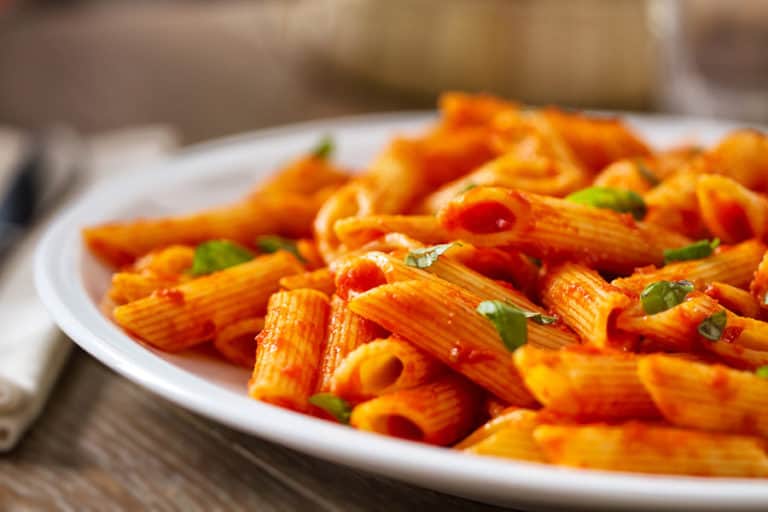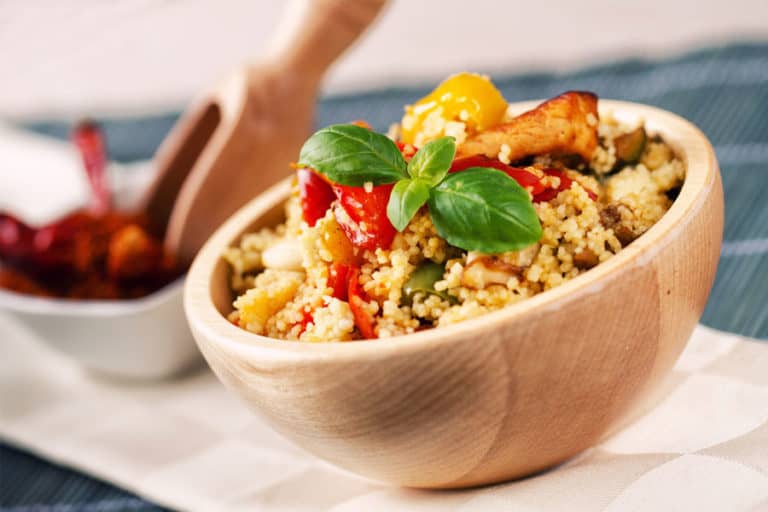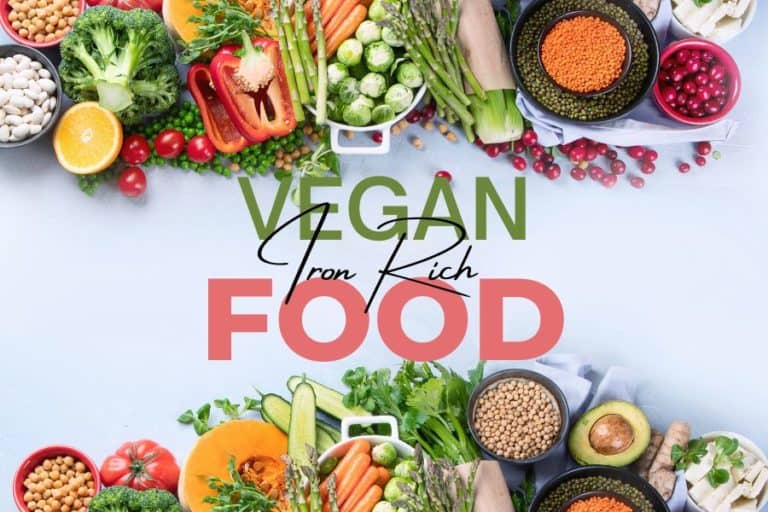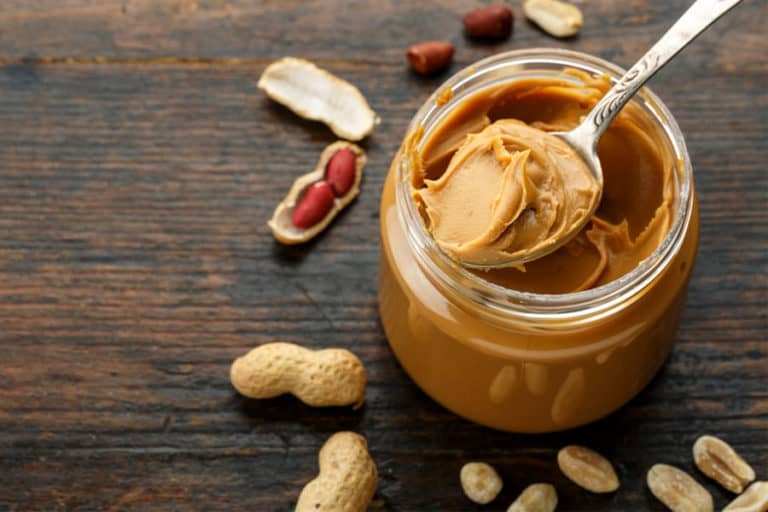The Gluten-Free Diet: Everything You Need To Know

Understanding Gluten | Gluten-Free Diet | Benefits | Disadvantages | Possible deficiencies | Who should try | Who should avoid | Foods to eat | Foods to avoid | Food labels | tips to follow | Start a gluten-free diet
The gluten-free diet is the only way to manage the symptoms of celiac disease, gluten allergy, or gluten sensitivity. Take a look at the benefits, risks, and everything you need to know about avoiding gluten in your diet.
Key takeaways
Gluten. A simple protein that can cause mild to severe health issues in people who are either sensitive or allergic to it. The only line of treatment? A gluten-free diet.
But what is gluten? What foods can you eat on a gluten-free diet? Read on to know more about the benefits of this diet and whether it is a suitable diet for you. Plus, a gluten-free diet plan to make it easier for you to go gluten-free.
Understanding Gluten
Who doesn’t love freshly baked banana bread, chocolate cookie, or a cheese sandwich? No doubt these foods can appeal to the most finicky person, but they can be a cause of concern for some people. Reason – they have gluten in them. So what is gluten [1]PubMed: What is gluten?, and what are gluten foods?
According to Coeliac Australia, gluten is a protein commonly found in grains like wheat, triticale, rye, and barley. It is most commonly present in foods like baked goods, pasta, cereals, candies, and crackers. Gluten protein is added to impart elasticity to the dough and give a unique texture to the food.
Now you may be wondering – who can and cannot eat gluten foods? The answer is simple – gluten foods are safe to eat for most individuals. Unless you have gluten intolerance symptoms or certain medical conditions like celiac disease, you can resort to such foods.
What Is a Gluten-Free Diet?
A gluten-free diet is a type of diet that avoids gluten, a protein found in wheat, barley, triticale, and rye. While some people avoid gluten for weight loss, others must avoid it due to health concerns.
Before stepping on the gluten-free bandwagon, you need to learn about foods that contain gluten to avoid them. Preventing gluten may seem daunting, but it’s not impossible. You need to pick the right foods. There are many different types of foods that are naturally gluten-free. Some people may be surprised to learn that many common foods do not contain gluten. Fruits and vegetables, fish, meat and eggs, nuts and seeds are naturally gluten-free foods as long as they do not come boxed with seasonings.
Benefits Of Gluten-Free Diet
Studies have been increasingly proving the health value of a gluten-free diet. The benefits of this diet stretch beyond the usual weight reduction and relief from celiac disease. Some benefits of the gluten-free diet are listed below:
1. It Reduces Chronic Inflammation In Celiac Disease Patients
It is a well-known fact that a gluten-free diet helps lower chronic inflammation in people struggling with celiac disease. Several studies [2]PubMed: Antibody levels in adult patients with coeliac disease during gluten-free diet: a rapid initial decrease of clinical importance conducted in the past have shown that diets rich in gluten-free foods reduce inflammation markers and also treat gut damage done by gluten-related inflammation in individuals with celiac disease.
2. It Relieves Digestive Symptoms
Most people either try to achieve weight loss with a gluten-free diet or opt for gluten-free foods to treat their digestive issues. Many scientific studies have proved that a gluten-free diet can help relieve digestive symptoms like bloats, constipation, diarrhea, and so forth. In one study, a large group of people with celiac disease consumed a gluten-free diet for 6 months. In the end, it was found that there was a significant reduction in their stomach pain and the frequency of diarrhea.
3. It Can Help You Lose Weight
It’s not unusual to lose weight with a gluten-free diet. The idea behind this kind of weight loss is that a gluten-free diet eliminates junk and processed food and replaces them with lean protein and fresh fruits & veggies. This eventually eliminates unwanted calories and helps in healthy weight loss. So, if weight loss with a gluten-free diet is your goal, try to avoid high-calorie, processed foods. Instead, eat a lot of whole, unprocessed foods like seasonal vegetables, fruits, legumes, healthy fats, and lean proteins.
4. It Can Boost Energy Levels
Experts say those coping with celiac disease are often found tired or sluggish. These symptoms are generally a consequence of nutrient deficiencies because of poor absorption of nutrients by the gut or small intestines. Fortunately, switching to gluten-free foods can boost the energy levels in people with celiac disease. This has been testified by a study that found that only 22% of patients with celiac disease experienced fatigue after relying on a gluten-free diet out of 66% of them who complained of fatigue in the first place.
5. Additional Benefits Of This Diet Plan
A gluten-free diet is not only beneficial for those with certain medical conditions like celiac disease but benefits common folk too. Here are some additional benefits of gluten-free diet for other individuals:
- A gluten-free diet can reduce the risk of diabetes and heart disease.
- It encourages us to eat fresh fruits and veggies for optimal health.
- A gluten-free diet eliminates unhealthy, processed food that can lead to obesity, bad cholesterol, and high blood pressure.
Disadvantages Of A Gluten-Free Diet
Although a diet comprised of gluten-free foods are great for people with digestive ailments and celiac disease, it comes with a handful of side effects too. Even if you are trying to lose weight by going gluten-free, consider the following cons beforehand:
1. It Can Engender Constipation
If you are on a gluten-free diet, you may experience symptoms of constipation. Reason – most gluten-free substitutes are low in fiber. A diet poor in fiber content can lead to fewer bowel movements. On the other hand, consuming a fiber-rich diet is known to promote healthy bowel movements.
2. It Can Be Socially Isolating
Eating out and socializing can be difficult on a gluten-free diet. Avoiding gluten can be time-consuming and requires you to be vigilant about reading labels and avoiding cross-contamination. Although many restaurants offer gluten-free foods, there are chances of contamination with gluten traces.
3. It Can Cost You A Lot
A gluten-free diet can be a costly experience if you have a strict budget. Research shows that foods labeled as gluten-free are more expensive than regular food items. So, if you are on a tight budget, fall back on naturally processed, single-ingredient whole foods. Try to buy your fruits and veggies from a local farmer’s market instead of supermarkets.
Common Vitamin Deficiencies In Gluten-free diet
Avoiding gluten-free foods has become more common for various reasons. However, are you getting enough nutrients in your diet? If you opt for a gluten-free diet, you will be at risk of certain nutritional deficiencies [3]National Library of Medicine: Nutritional deficiencies in celiac disease. These deficiencies are generally associated with vitamins A, D, E, K, and B12, fiber, iron, and calcium.
The best you can do to prevent these deficiencies and meet your nutritional needs is to consume a well-balanced diet. If you have celiac disease, try fortified gluten-free versions of foods and nutrient supplements.
Let us look at the vitamins and nutrients you might miss in a gluten-free diet plan and how to include them in your diet.
Vitamin B12: This vitamin is found naturally in cereals and other gluten foods. So people who follow a gluten-free diet may be at risk for B12 deficiency. Lack of this essential nutrient has been observed to cause chronic fatigue in people. You can add seafood, red meats like beef, organ meats like liver, eggs and dairy products to your diet to fight the possibility of experiencing fatigue when you go gluten-free.
Vitamin D: If you follow this diet, you may have vitamin D deficiency. Ensure safe exposure to sunlight and eat enough seafood like salmon to get sufficient vitamin D.
Iron: People who follow a gluten-free diet may be at risk for iron deficiency because wheat is a good source of iron. Include beans, lentils, and spinach to get enough iron.
Calcium: When you are on a gluten-free diet plan, you may have a calcium deficiency. To get enough calcium, include dairy products, broccoli, and almonds in your diet.
Zinc: This is a mineral that’s important for immune function, wound healing, and fertility. Rely on eating beans and nuts to not miss zinc when you are on a gluten-free diet.
Fiber: Gluten-free diets may lack fiber because wheat is a good source of fiber. Non-glutinous sources of fiber include apples, lentils, and oats.
Who Should Go Gluten-Free?
People follow a gluten-free diet for different reasons. Two groups of people need to go gluten-free: those with celiac disease and those with gluten sensitivity.
- Celiac Disease – This is an autoimmune disorder that affects the digestive system. When people with celiac disease [4]National Institute of Diabetes and Digestive and Kidney Diseases: Celiac Disease eat foods that contain gluten, their immune system reacts by damaging the villi. Villi are tiny, finger-like projections that line the small intestine. The damage caused by celiac disease further prevents the villi from doing their job, which is to absorb nutrients from food.
- Non celiac gluten sensitivity (NCGS) – People with non celiac gluten sensitivity [5]National Library of Medicine: Recent advances in understanding non-celiac gluten sensitivity don’t have celiac disease, but they still experience some of the same symptoms when they eat foods that contain gluten. These symptoms can include abdominal pain, bloating, and diarrhea.
- Irritable bowel syndrome (IBS) – A condition that affects the large intestine.
- Dermatitis Herpetiformis – a chronic skin condition associated with celiac disease and characterized by intensely itchy, blistering skin.
Besides this, a gluten-free diet is often claimed to help with weight loss. Although there isn’t enough evidence to support this claim, some people tend to go gluten-free to manage weight.
Who Should Avoid Gluten-Free Diet?
Health trends come and go like the seasons, but one thing that won’t change is your need for good nutrition. With all these new diets popping up daily, it can be hard to track what’s right for you personally or as part of an entire diet plan. It can be overwhelming to try a gluten-free diet.
On a gluten-free diet, you need to be mindful of vitamins and nutrients intake in your diet. If you suffer from vitamin deficiencies, this diet is not for you. You should avoid switching to a gluten-free diet.
Going gluten-free isn’t always the best solution for people who are not allergic or sensitive to gluten. In fact, unnecessary switching to this diet will do more harm than good to your health.
What Foods Are Gluten-Free?
Although there are many foods you need to avoid on a gluten-free diet plan, there are plenty of delicious and nutritious foods that are free of gluten. Here is a list of tasty, healthy and, naturally gluten-free foods that you can include in your diet.
1. Fruits & Vegetables
They are naturally gluten-free, so you can eat as many as you like. To get enough nutrients in your diet, ensure that you include fresh fruits and veggies in your everyday meal:
2. Gluten-free Meats, Poultry, and Fish
Gluten-free diet does not require you to give up meat, poultry, and fish. Meats are naturally gluten-free. Just make sure that these items are not marinated or coated in a flour mixture when you purchase them. Here is a list of meat you can add to your diet:
- Eggs
- Chicken
- Beef
- Fish
- Lamb
- Pork
- Salmon
- Turkey
3. Drinks
There is a misconception that you may need to give up all drinks when you need to avoid gluten. That’s not true. However, some malt beverages and flavored hard ciders may contain gluten. Have a look at the popular gluten-free drinks you can have:
- Almond Milk
- Fruit Juices
- Lemonade
- Wine
4. Condiments
Generally, condiments make food tasty and exciting. But when you are on a gluten-free diet, you may have to limit yourself from using some seasonings. Yet, here are some gluten-free condiment options:
- Coconut oil
- Olive Oil
- Sesame Oil
- Soy Sauce
- Honey
- Salsa
- Mayonnaise
5. Grains
There are several gluten-free grains that you can include in your diet. Here are some common naturally gluten-free grains you can enjoy:
6. Dairy Products
You don’t need to avoid dairy products on this diet. However, processed cheese and yogurt may contain gluten, so here is a list of dairy products that are free of gluten:
- Milk
- Butter
- Fresh Cream
- Plain Yogurt
- Unflavoured Cheese
Besides the naturally gluten-free foods we have listed above, there are other tasty gluten-free dishes you can indulge in like risotto, a warm bowl of grits or farro, etc. You can also try sourdough bread, which has an acceptable gluten content of less than 20 parts per million. Include these dishes in your diet to make it exciting yet gluten-free.
Foods To Avoid On Gluten-Free Diet
Switching to this diet can be tricky. It is because gluten is found in many common foods. Also, this protein is often added to processed foods. So it’s important to read food labels carefully and avoid foods that contain gluten. Regardless, the best thing to do is to know what foods you need to avoid beforehand.
1. Grains
Grains come top in the foods you should avoid on a gluten-free diet. While not all grains contain gluten, many do. This includes grain-based foods like bread, pasta, cereals, and tortilla. Take a look into the most common grains that contain gluten:
- Barley
- Rye
- Wheat
- Spelt
- Couscous
2. Condiments
Most of us are unaware, but besides grains, most condiments have high gluten content. You might be wondering why. This is because manufacturers use gluten to make liquid-like foods get a thicker consistency. So here are some condiments you need to avoid in your diet:
- Ketchup
- Tamari Soy Sauce
- Instant Gravy Mixes
- Barbecue Sauce
- Barley Malt
3. Baked goods
Most of the baked goods contain wheat, which has high gluten content. These products are often off-limits for people with celiac disease or gluten sensitivity. When you are on this diet, avoid these baked goods:
- Cake
- Cookies
- Doughnuts
- Muffins
- Pancakes
- Waffles
4. Processed Foods
Gluten is often added to foods such as meats, soups, and salad dressings. Consuming these foods may lead to blood sugar swings, high blood pressure, and sudden weight gain. Regular foods and meat, unless seasoned, do not contain gluten. So it’s important to read food labels carefully and avoid foods that contain gluten. However, remember that a gluten-free label is not your ticket to healthy eating. Have a look at processed foods you need to avoid
- Pasta
- Bread
- Cereals
- Processed meat
- Cheese
- Burgers
- French fries
5. Beverages
Most beverages, specifically alcoholic beverages, are made of grains. Beers and wine coolers are obtained from wheat or barley that contains high gluten. You need to check your drinks before consuming them. Here is a list of popular drinks that contain gluten
- Beer
- Whisky
- Vodka
- Wine Cooler
Know About Gluten-free Food Labels
There are a few things you should know about gluten-free food labels. First, the FDA has not formally defined the term “gluten-free.” Gluten-free is a voluntary claim that manufacturers can choose. This means manufacturers can use the term any way they want as long as their products meet the FDA’s broad guidelines. The guidelines are as follows:
- Gluten-free claims can only be made on foods that don’t contain wheat, rye, barley, or any of their derivatives.
- This includes food ingredients that are derived from these grains but have been processed to remove the gluten.
- Gluten-free claims can also only be made on foods that don’t contain any ingredients that are made from these grains.
Second, the FDA does not require manufacturers to test their products for gluten content. This means that manufacturers do not need third-party certification for their products. However, the FDA does encourage manufacturers to test their products and get certification from organizations like the Gluten Intolerance Group or the Celiac Sprue Association.
Third, the FDA does not require manufacturers to use a particular gluten-free label. Manufacturers can use any label they want as long as it is not misleading. For example, a manufacturer cannot use a label that says “gluten-free” if the food contains ingredients derived from wheat, rye, or barley.
Finally, the FDA does not have specific requirements for how much gluten must be present in food before it can no longer be considered “gluten-free.” However, the FDA does encourage manufacturers to use a gluten content of less than 20 parts per million. This is the level that is safe for people with celiac disease.
Always remember, just because a label says that food is gluten-free doesn’t mean it’s gluten-free.Try to stick to natural or home-cooked whole foods while on this diet.
Tips To Follow When On Gluten-Free Diet
- Avoiding gluten in restaurant: Always look for restaurants that serve gluten-free options. However, if they don’t have a separate section on their menu, stick to basic veggies cooked with olive oil, salt, and pepper. Additionally, you can ask for meat that is not marinated or battered.
- Stay away from gluten-free processed foods: Gluten-free processed foods are often high in fat and calories. They can also be low in fiber and nutrients. To ensure you get the nutrients your body needs, eat whole, unprocessed, naturally gluten-free foods as much as possible.
- Grocery shopping: You may have to do some hunting to avoid gluten in your grocery shopping. Some stores have a separate section for gluten. Check the natural food section or the gluten-free section of your grocery store. When shopping for gluten-free products, always check the labels to make sure they are truly gluten-free.
- Read labels carefully: When you are on a gluten-free diet, you must practice reading labels carefully to identify and stay away from gluten. These days it is not even difficult to find products labeled gluten-free in your neighborhood stores. When you are reading labels, check out ingredients and look out for mentions of gluten products like wheat, rye, barley, etc.
- Gluten-free diet red flags: When you are on this diet, consuming gluten may quickly result in adverse reactions. Particularly if you have given up gluten due to celiac disease or gluten sensitivity. Abdominal pain, constipation, gastritis, diarrhea, and vomiting are red flags you need to keep a close eye on.
- Keep an eye on cross-contamination: When you pick a product that is labeled gluten-free, you need to double-check its place of manufacture as well. Gluten-free products are often processed in the same area as gluten-containing products. This can lead to cross-contamination. To avoid this, only buy gluten-free products that are packaged in a dedicated gluten-free facility.
- Look for hidden sources of gluten: Gluten may also be present in some food colorings, flavorings, and preservatives. Gluten can be found in many unlikely places, such as in medications, vitamins, and lip balms. Always check hidden ingredients in your gluten-free food products.
How To Start Gluten-Free Diet?
If you have been diagnosed with celiac disease or gluten sensitivity, you will need to follow a strict gluten-free diet. This means eliminating all foods that contain gluten from your diet.
Eating a gluten-free diet can be challenging, but it’s important to stick to the diet in order to maintain your health if you have chronic health concerns. Here is a sample 1 week plan for you.
1 Week Gluten-Free Diet Plan
| Day | Breakfast | Lunch | Dinner |
| Monday | Berries and Greek yogurt parfait, and Sausage and egg muffins (with cornmeal) | Vegetable salad, Chili turkey | Steak with yam and zucchini |
| Tuesday | Gluten-free pancakes, Skimmed milk | Cornbread, Fruit salad | Balsamic glazed mushrooms and chicken |
| Wednesday | Peanut butter & banana toast, Berry smoothie | Tuna salad, Bean & beef slow-cooked chili | Pork loin with rosemary, garlic, and basil |
| Thursday | Tomato and spinach omelet, Chocolate & nut smoothie | Shrimp avocado salad, turkey meatballs & Zucchini noodles | Garlic mashed cauliflower, Steamed rice |
| Friday | Zucchini parmesan waffles, Fruit smoothie | Creamy egg salad, Mediterranean chicken quinoa | Tuscan butter salmon, Stuffed peppers |
| Saturday | Banana nut muffins, Hard-boiled egg | BLT salad, Roasted chicken thighs | Pizza-style quinoa casserole, green beans |
| Sunday | Overnight oats with chia seeds, Almond milk | Quinoa tabouli, Grilled lamb chops | Cilantro lime shrimp, Roasted sweet potatoes |
Conclusion
Going gluten-free is extremely beneficial for those with health concerns like celiac disease, digestive disorders, and non celiac gluten sensitivity. When it comes to weight reduction, there is no solid scientific evidence showing that a gluten-free diet can help people lose weight. So, unless you have medical concerns like celiac disease, you need not restrict gluten consumption.
To maintain a healthy weight, we recommend eating more whole foods rich in healthy nutrients. Also, it’s crucial to limit the intake of processed food and unhealthy stuff that are loaded with calories. Eating gluten-free food can help you with that. Meanwhile, don’t forget to exercise as it too plays an important role in maintaining optimum body weight and overall health.
References
| ↑1 | PubMed: What is gluten? |
|---|---|
| ↑2 | PubMed: Antibody levels in adult patients with coeliac disease during gluten-free diet: a rapid initial decrease of clinical importance |
| ↑3 | National Library of Medicine: Nutritional deficiencies in celiac disease |
| ↑4 | National Institute of Diabetes and Digestive and Kidney Diseases: Celiac Disease |
| ↑5 | National Library of Medicine: Recent advances in understanding non-celiac gluten sensitivity |







